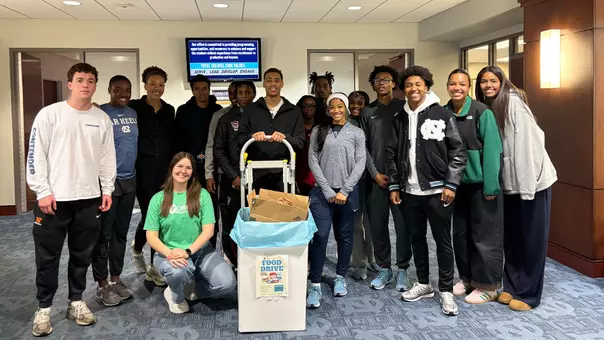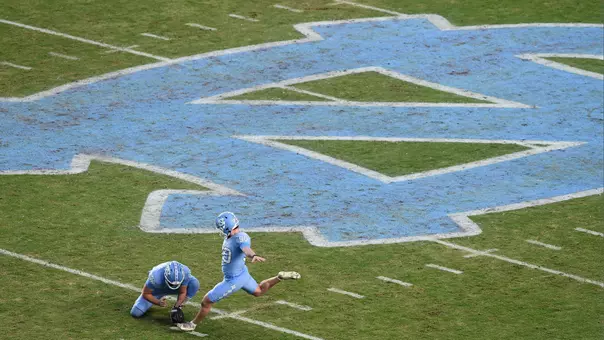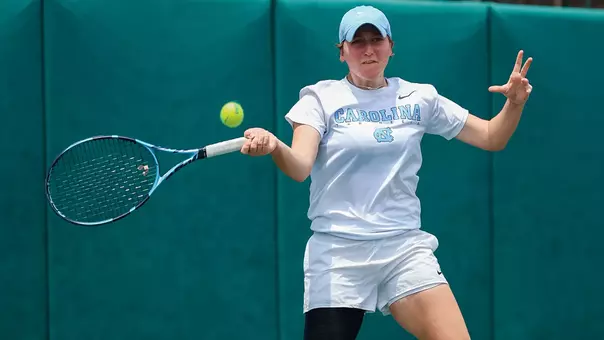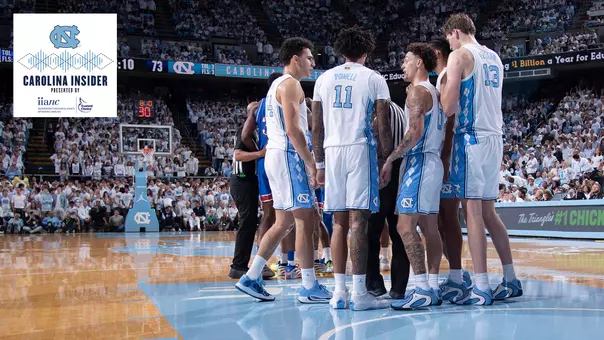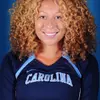University of North Carolina Athletics
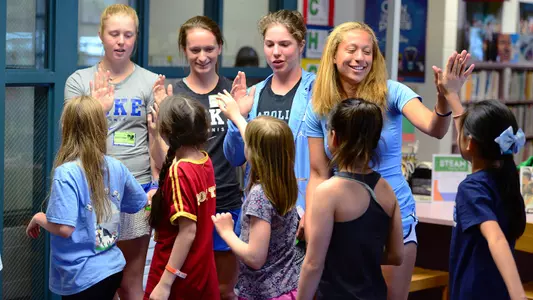
Compassion It
April 11, 2017 | General, Women's Tennis, Student-Athlete Development, Carolina Outreach
By Turner Walston
A perhaps-unlikely group of student-athletes teamed up Monday in Chapel Hill to teach an important lesson. Four women's tennis players, two each from Duke and Carolina, stood together in the library at Glenwood Elementary School to speak to fourth-graders about compassion and sportsmanship. Two different shades of blue were represented by Carolina's Rachael James-Baker and Jessie Aney and Chalena Scholl and Kaitlyn McCarthy of Duke.
The visit grew out of a partnership with the non-profit Compassion It, to help promote togetherness and understanding during ACC Sportsmanship Week.
"Compassion means to show someone love and warmth and kindness," James-Baker said.
To illustrate their message, each of the student-athletes shared stories of when they were compassionate or compassion was shown to them.
Aney told the story of playing against good friend and fellow Rochester, Minnesota native Ingrid Neel in ITA National Indoors competition earlier this year. "She won the match, so she won the national championship, and her whole team was celebrating," Aney said. "They were all around her, but she got out and gave me a big hug . . .That was a way that she showed that our friendship was bigger than the sport and wins and losses."
James-Baker talked about correcting the call of a doubles opponent's shot on match point –it was in but called out– in high school playoff competition. "When you have someone as your partner, you don't want to let them down," she said. "But I looked at the bigger picture. People really take notice when you're compassionate."
Scholl, who has struggled with injuries throughout her career, talked about playing a match against an opponent who was playing with a knee injury, and reaching out afterward to empathize. "I knew she wasn't playing as well as she could have, so at the end of the match, I said, 'It seems like you're going through a tough time. I'm really sorry. I feel for you. I understand how hard it is, and hopefully it will get better,'" she shared.
McCarthy told the students about the scoring of college tennis matches, and that sometimes the chair umpires lose track. "Sometimes they mess up the score in your favor, or out of your favor, and your job as a player and a sportsman is to tell them the right score, whether or not it puts you in a better position in the game," she said. "I truly believe that stuff like that comes back around. People who play fairly, it comes back. It will help you in the end."
And while the young students were happy to hear from the student-athletes, they too had plenty to say about compassion for one another, for themselves and for the environment.
"Showing how much you care about them."
"Being brave."
"Empathy."
"It's like playing fair and not being like 'You guys are going to lose to the other team.'"
"What would you do if you saw a stray dog with no collar? I would pick it up and keep it."
The student-athletes handed out Compassion It wristbands to help the fourth-graders remember the importance of compassion. The bracelets are Duke blue on one side and Carolina blue on the other. The idea is to begin the day with the preferred side facing inward. Then, when one performs an act of compassion, to flip it around. So a Carolina fan would begin with the Duke side showing, then be reminded to be compassionate.
"What if you're not a fan of Duke or Carolina? Can you have two bracelets if you can't decide?" one student asked.
"Maybe you like one color better than the other," was the response. "Or change colors on different days."
Aney, James-Baker, Scholl and McCarthy stood together in the Glenwood library, and will see each other again next Wednesday, when Duke visits Cone-Kenfield Tennis Center for a match against the Tar Heels. One can expect, no matter the result, that the student-athletes will continue to show compassion and sportsmanship.



